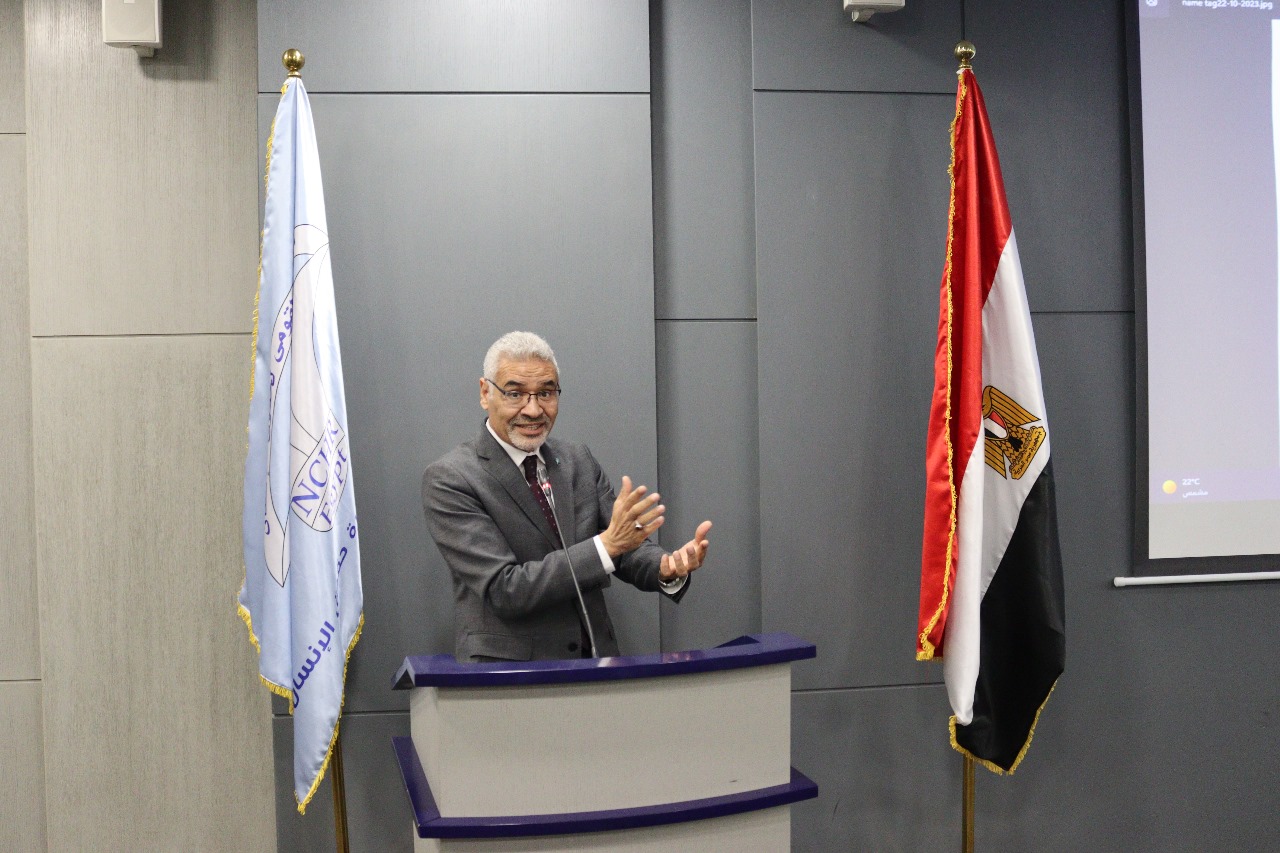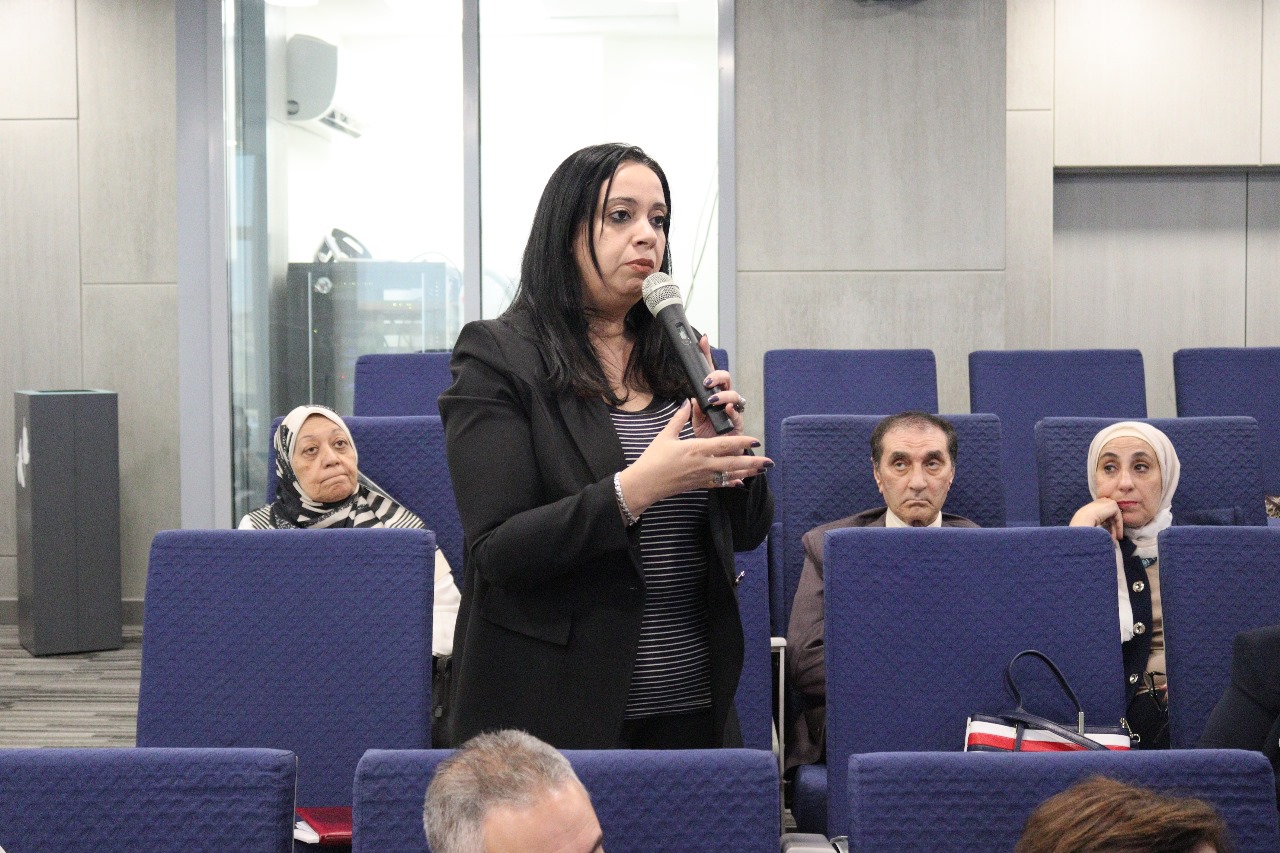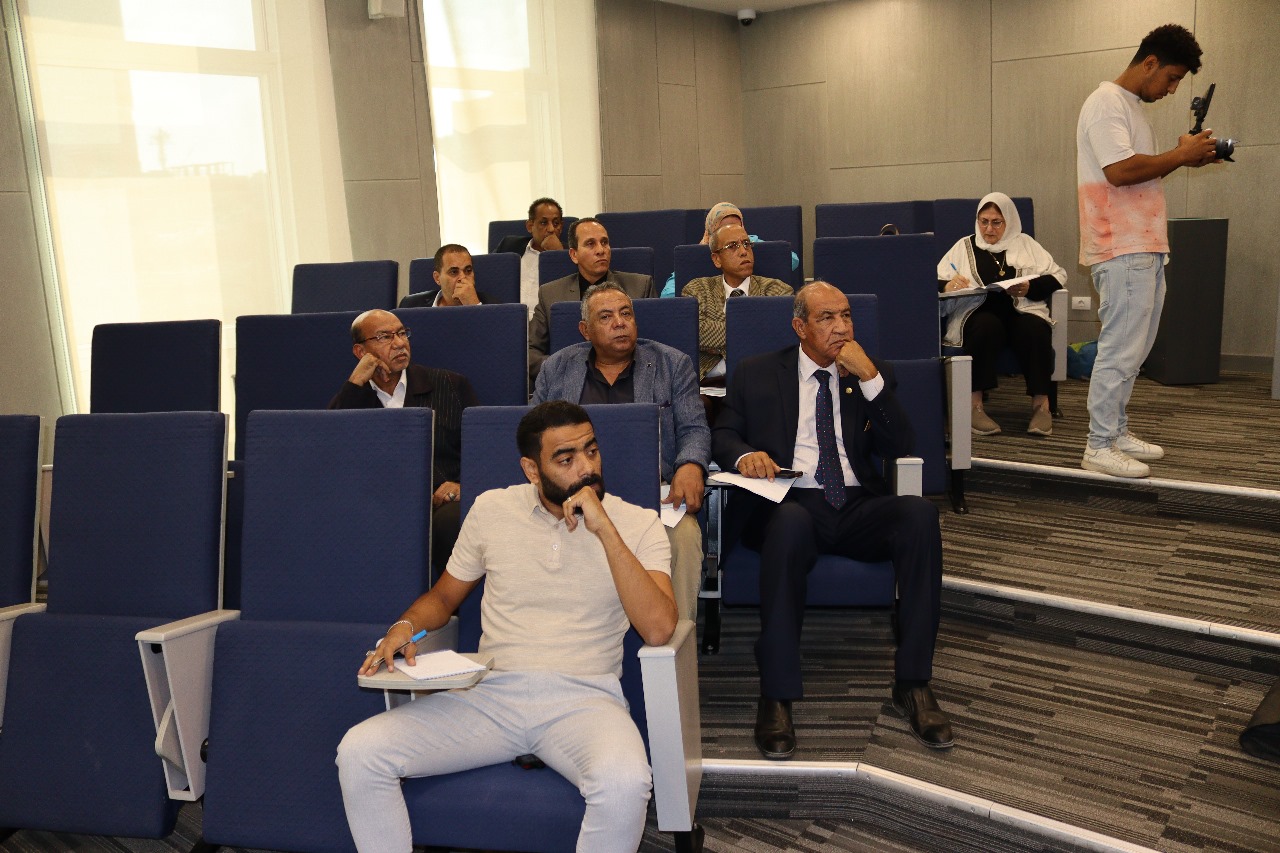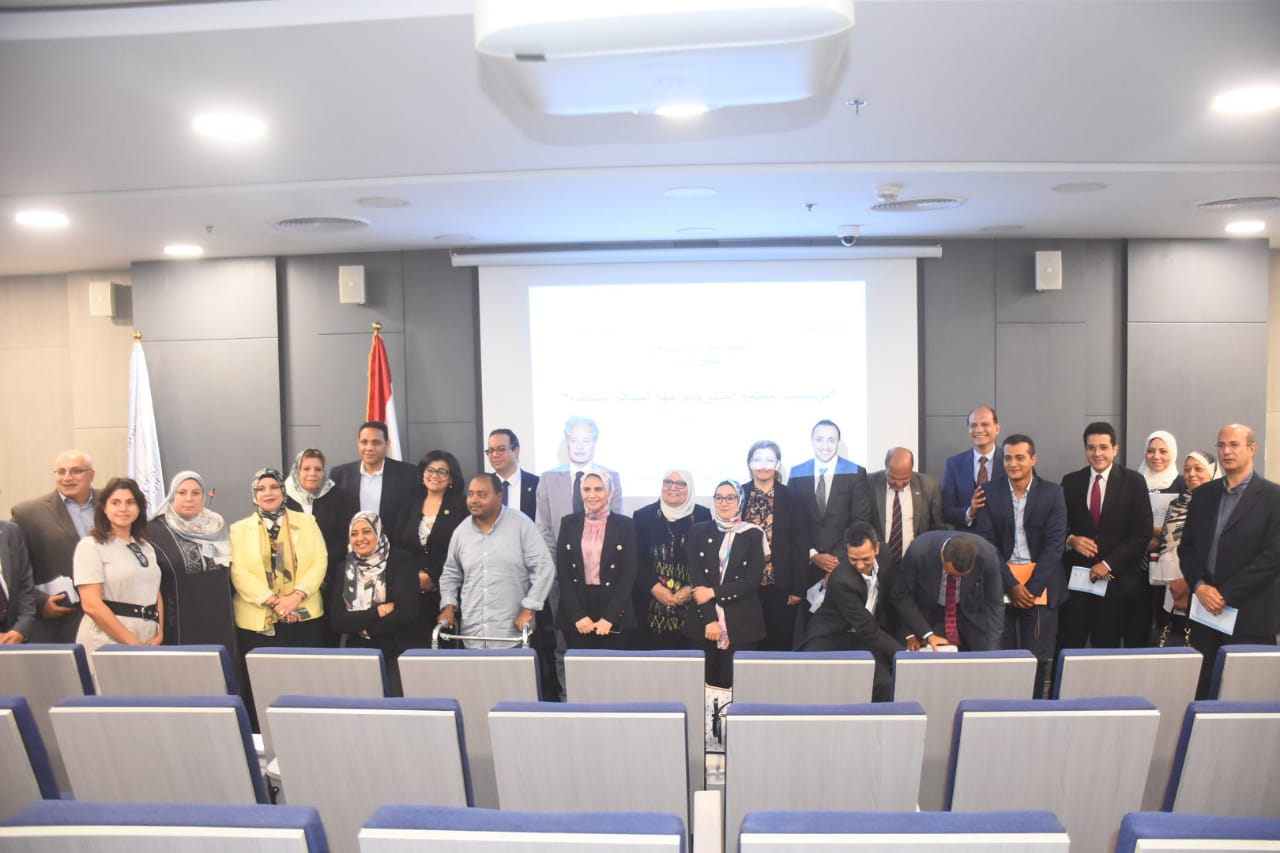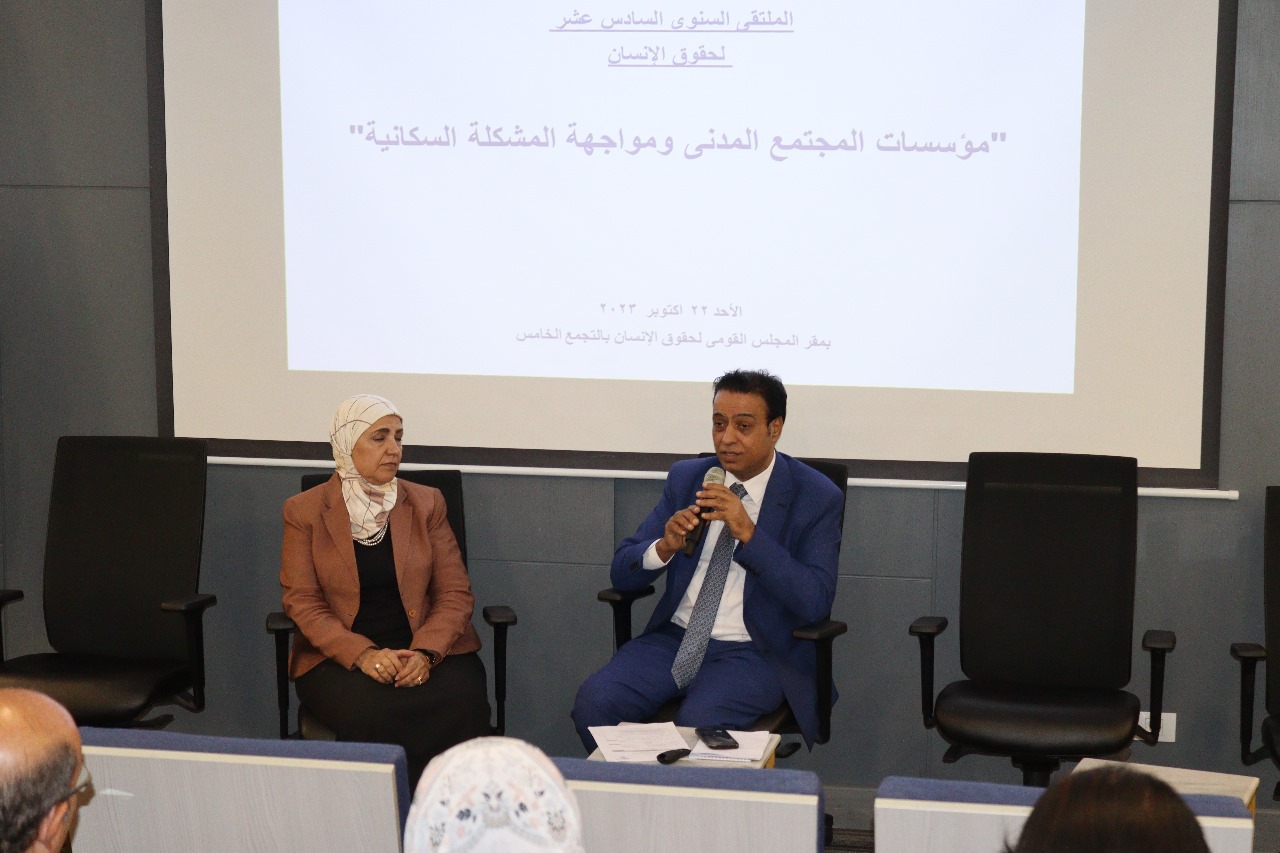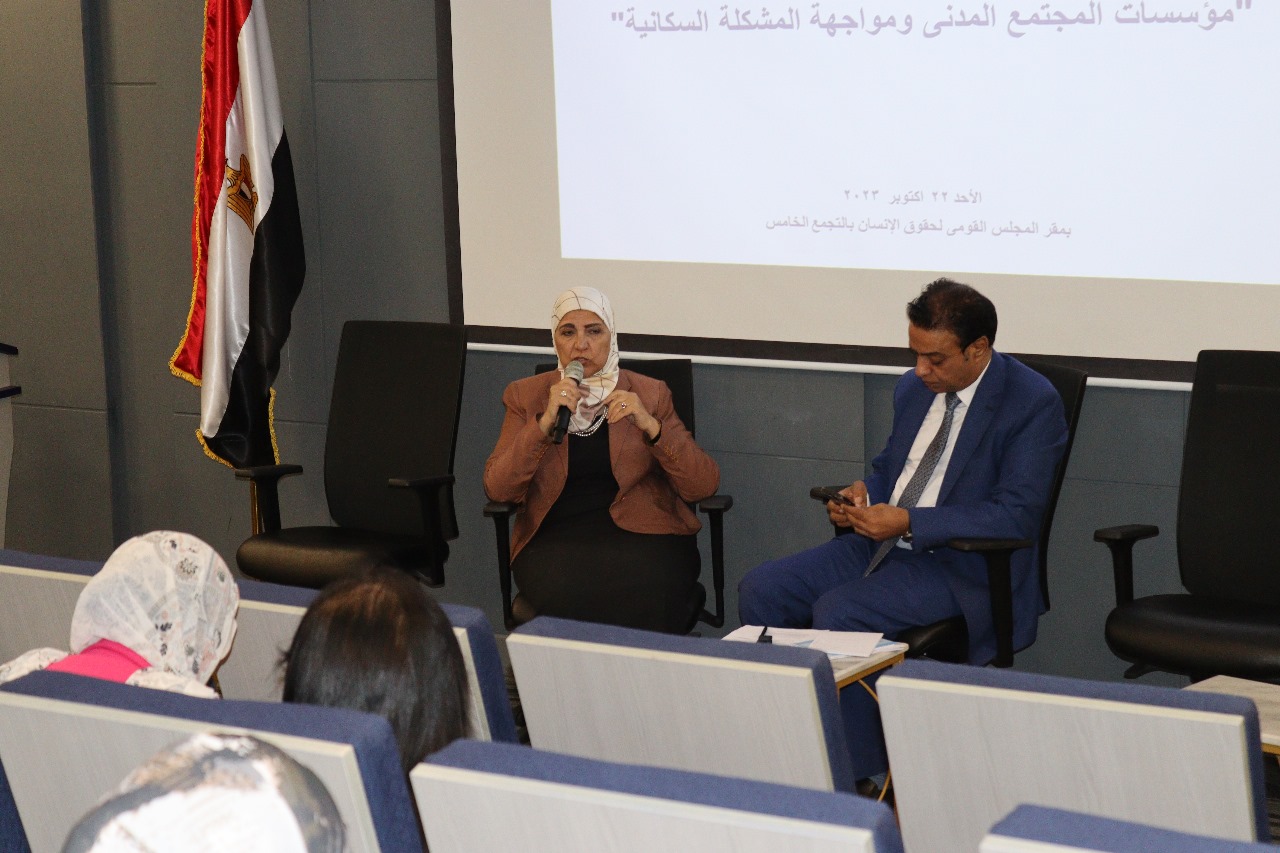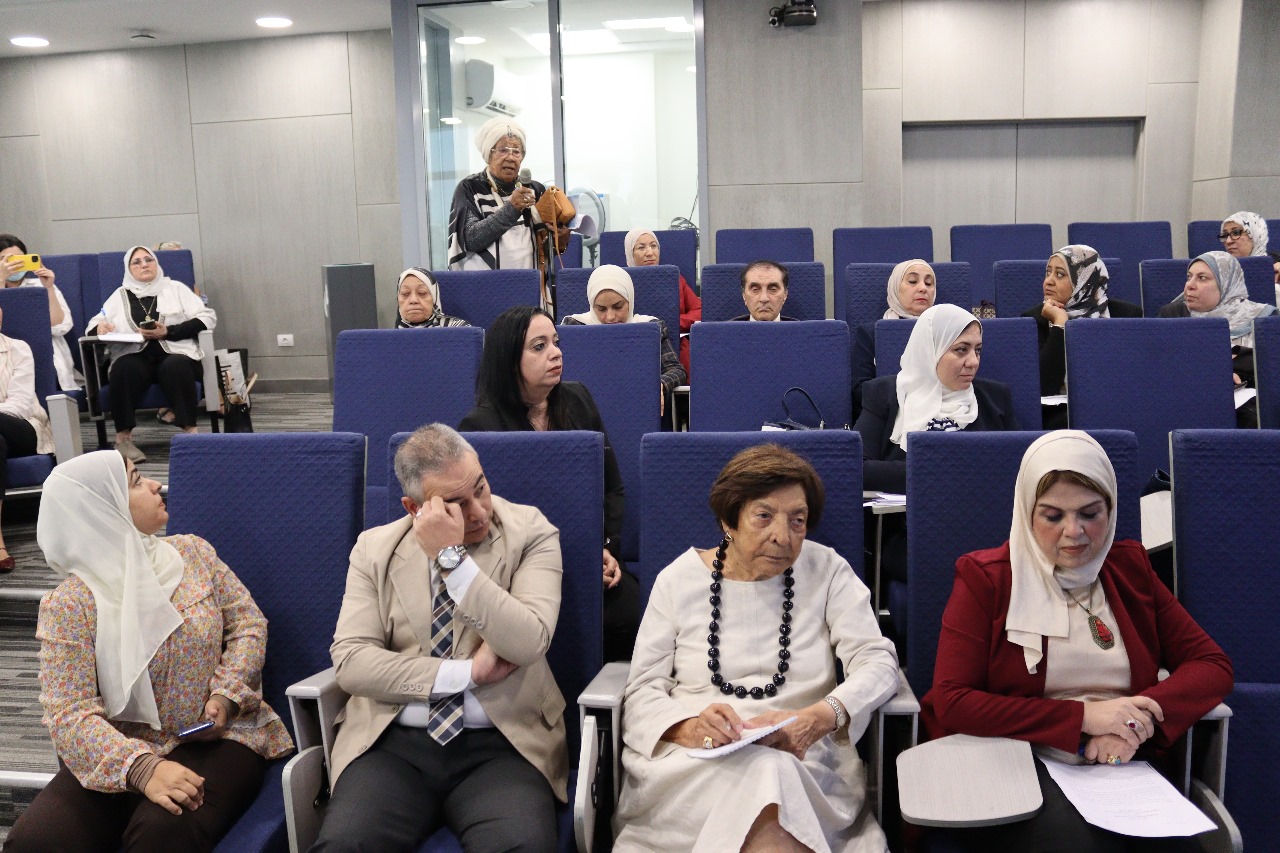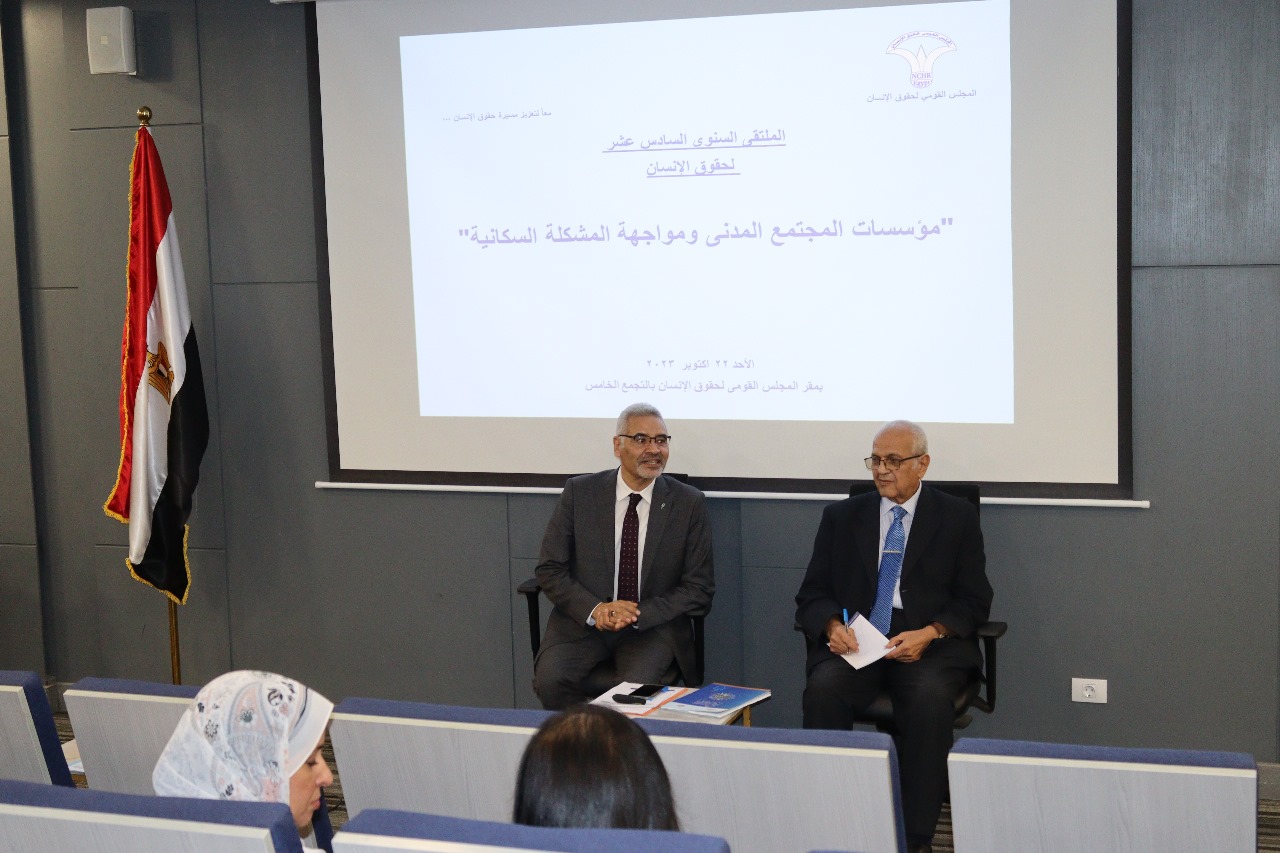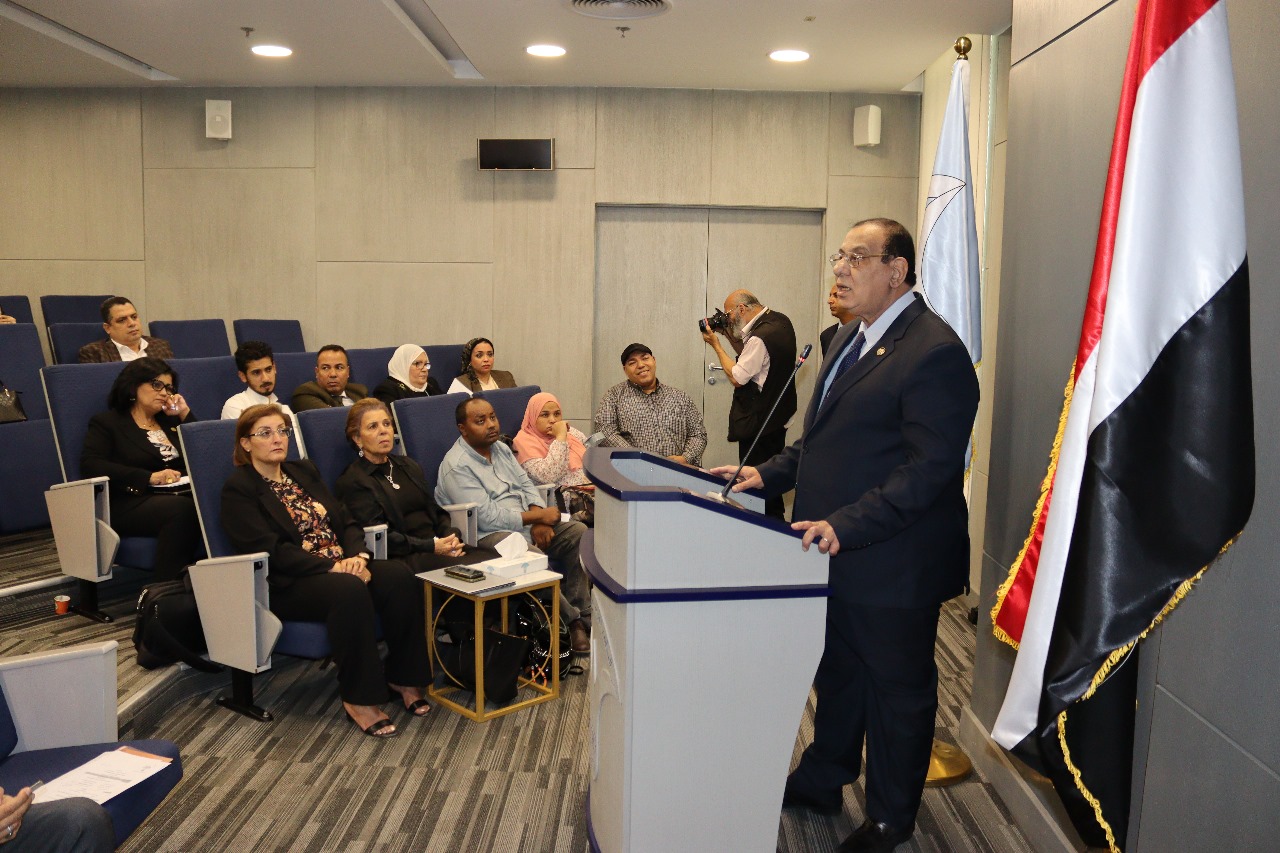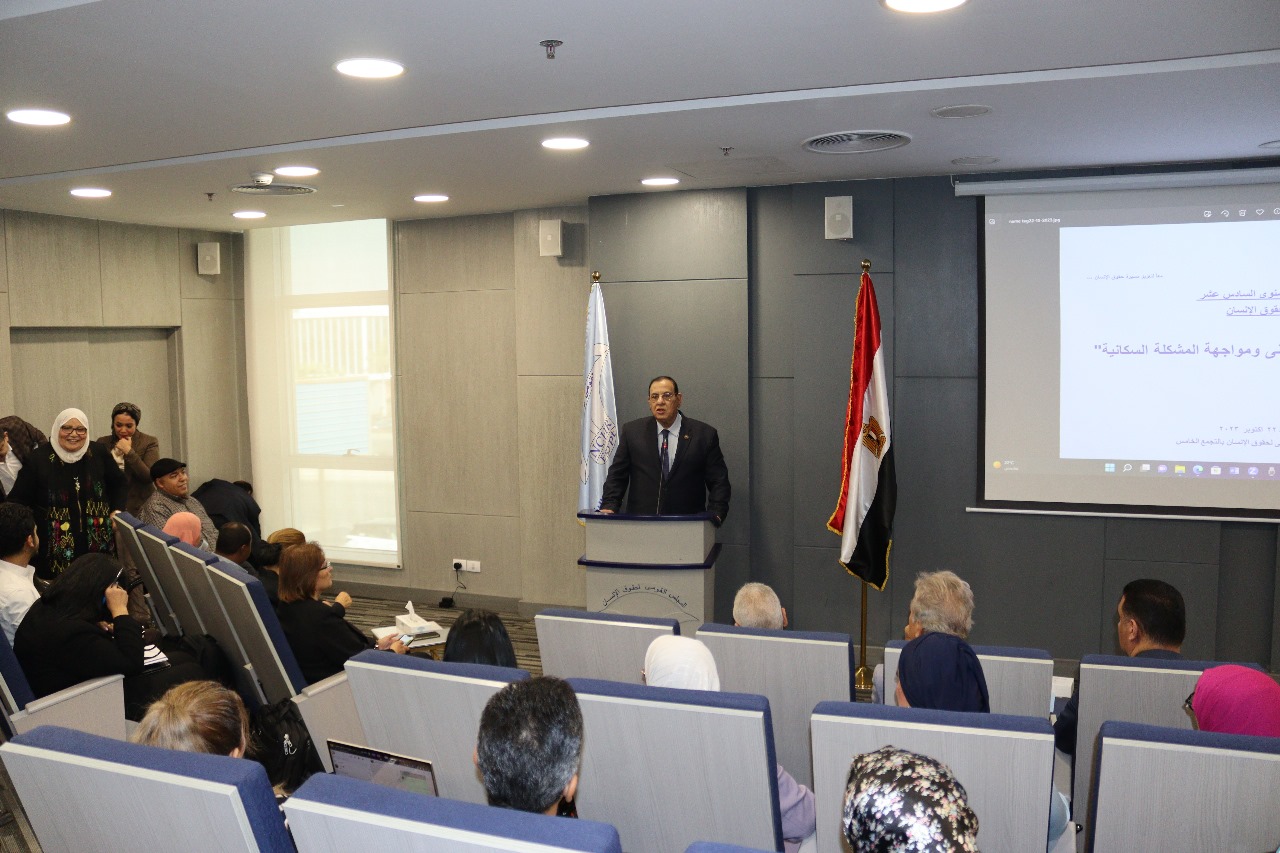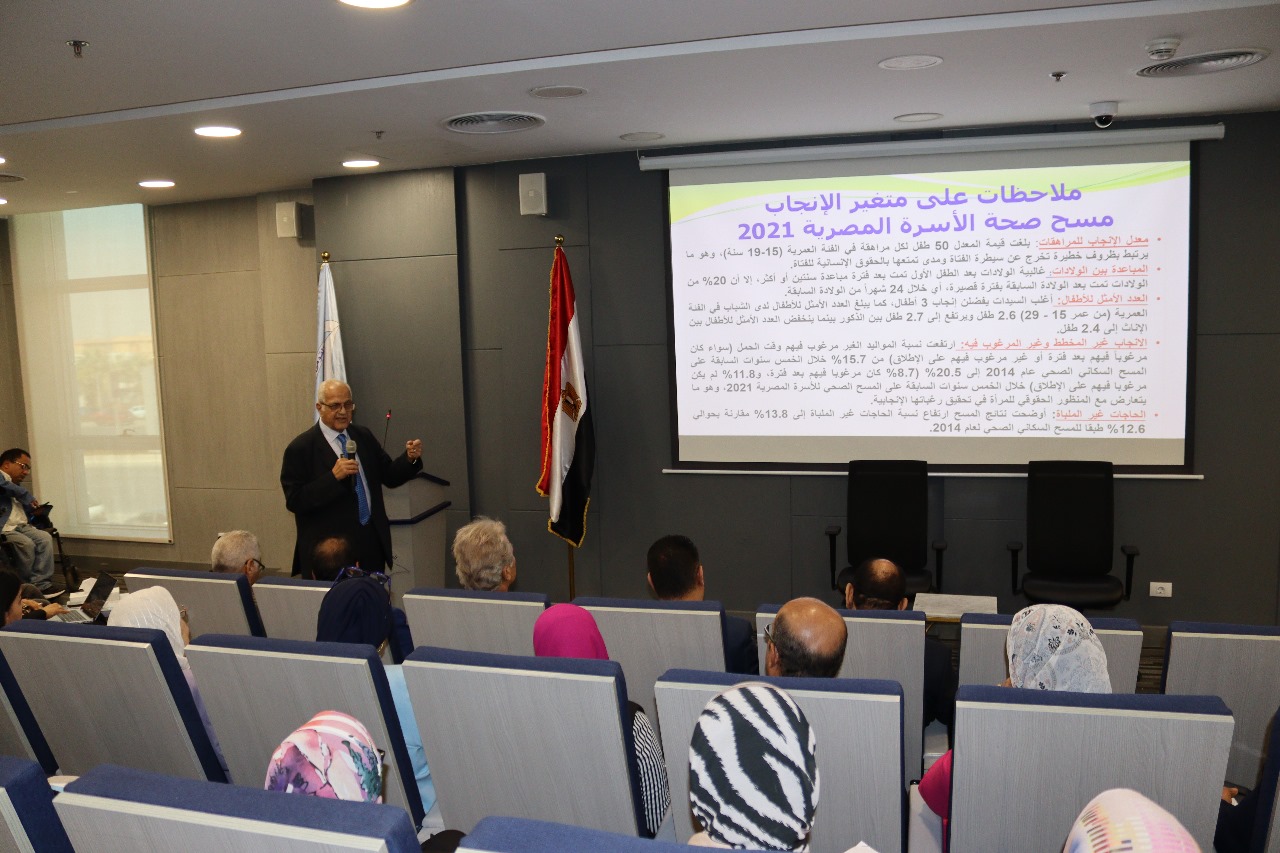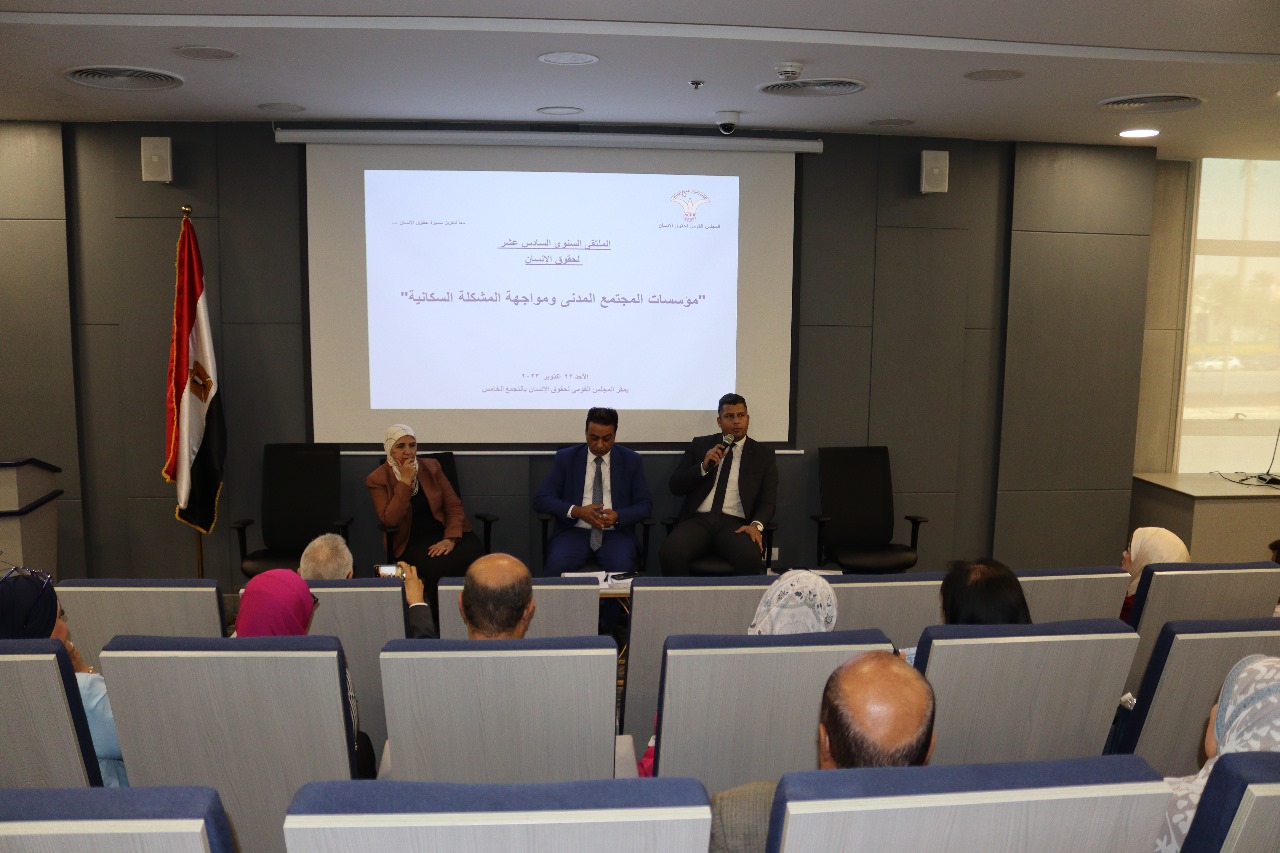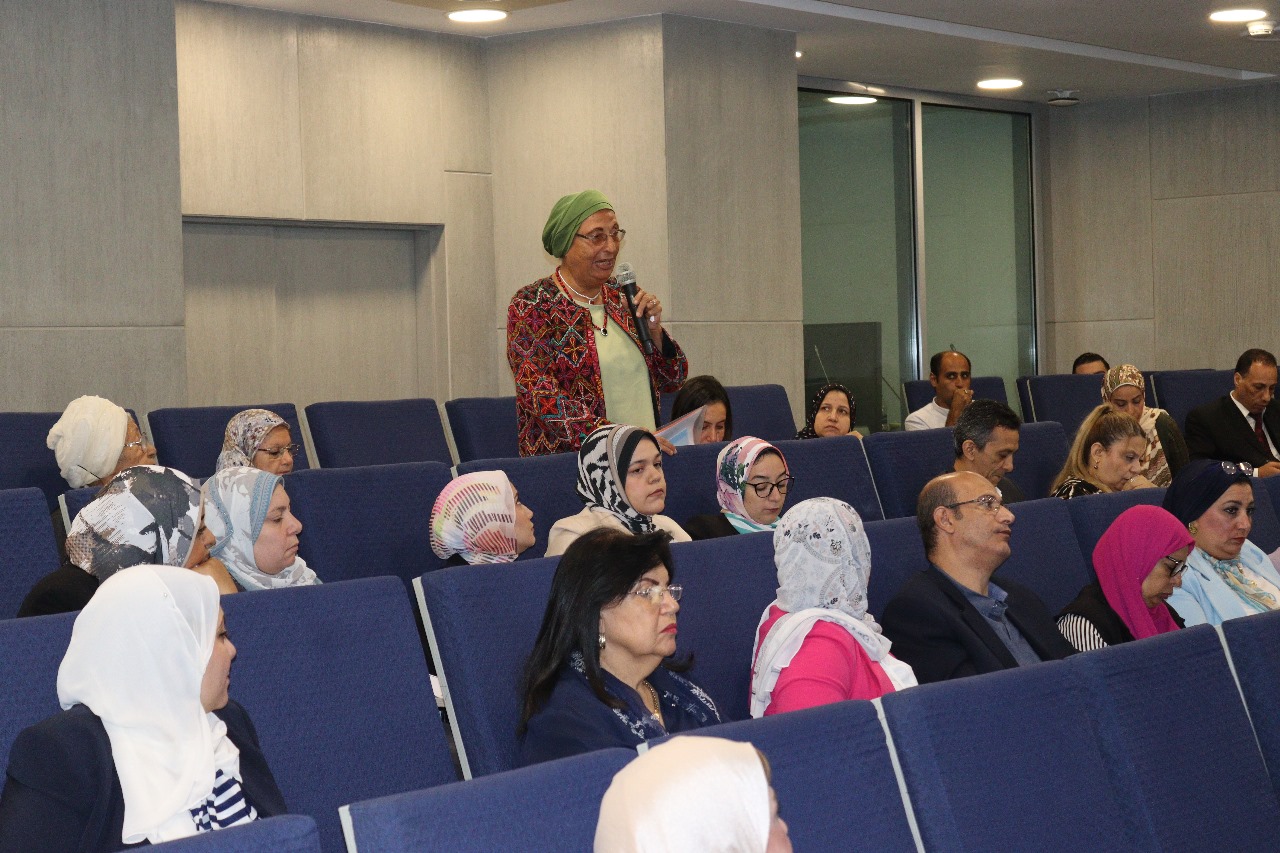Statement of the Sixteenth Forum for Human Rights “Civil Society Institutions and Confronting the Population Problem”
The National Council for Human Rights (NCHR) organized the sixteenth annual forum for human rights, entitled “Civil Society Institutions and Confronting the Population Problem,” which comes within the framework of the NCHR’s keenness to maintain constant communication with civil society organizations and relevant government agencies and bodies, with the aim of maximizing the benefit from the efforts made by all parties towards the issues of community services to serve the Egyptian citizen.
Representatives of civil society organizations and institutions specialized in the population issue, representatives of ministries and governmental bodies, and public figures participated in the work of the forum, in addition to a number of press and media institutions. The opening session of the forum began with a speech by Ambassador Dr. Mushira Khattab, NCHR President, and a speech by Minister of Social Solidarity, which was delivered by Mr. Ayman Abdel Mawjoud, Assistant Minister of Social Solidarity for Associations Affairs, a speech by Dr. Talaat Abdel Qawi, President of the General Federation of Associations, and a speech by Dr. Ayman Zohri, rapporteur of the forum and member of NCHR.
The first session dealt on the population situation in Egypt, and the second session was on civil society organizations and the population issue - opportunities and challenges. The third session was entitled “Exchanging experiences on the activities of associations in the field of the population issue,” then the fourth session was entitled “Social, Economic and Cultural Rights and the Population Issue,” then It was followed by the fifth session on “The Decent Life Program and its impact on the enjoyment of human rights and improving population characteristics.”
The forum concluded its work with a closing session to present proposals and recommendations, stressing the importance of cooperation between civil society and government agencies in order to achieve the desired goals. This was followed by the forum’s rapporteur presenting the proposals and recommendations that came out of the forum, the most important Recommendations of which are the following:
1- Work to support cooperation between the various parties implementing the population program, especially civil society organizations
2- Removing the obstacles facing civil society organizations in working in the field of population and working to provide the necessary training and funding for these activities
3- Educating young people at different levels of education about the population issue in order to ensure that new generations adopt the idea of the small family.
4- Providing information on population and youth, women and family issues not only at the national level, but also at the level of smaller units to facilitate the work of associations and focus on spatial conditions.
5- Cooperation between academic and research entities and civil society organizations in training on the use of data and information and their use in planning, especially at the grassroots levels.
6- Supporting means of monitoring and evaluating population projects and related issues, especially health and education issues
7- Work to activate laws to combat dropout from education and child labor, which have an impact on the population problem
8- Unifying the efforts of civil society organizations and cooperation between grassroots associations and central associations
9- Valuing the experience of the Decent Life Program as an important means and approach to raising population characteristics in the Egyptian countryside because of its impact on addressing the population issue, as the decline in population characteristics represents an important aspect of the population problem.
10- Promoting continued cooperation between the NCHR and civil society organizations working in the field of the population issue and planning joint activities and events.





 English
English
 Arabic
Arabic
 French
French
